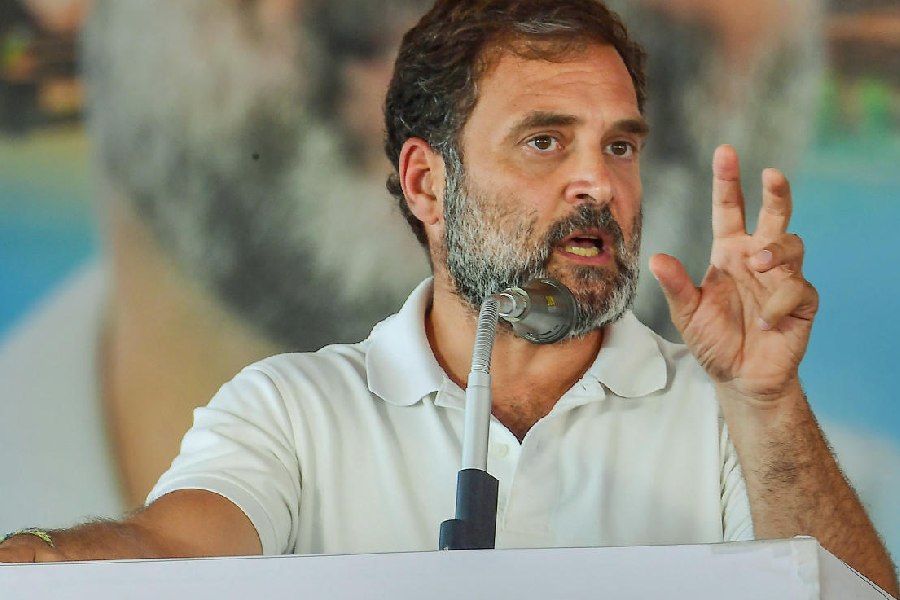Saturday, April 28, 2018, was Marv Dauer’s 75th birthday. It was also going to be his comeback.
After more than three decades as a Hollywood talent manager, Dauer, tanned and silver-haired, had the aura of success, but in reality, his client list had dwindled to a few B-list actors.
Casting directors ignored his emails. His finances were precarious. He had nearly lost his home to foreclosure.
But now Dauer had coaxed to his party someone who could change all that.
More than 100 friends, sports figures, casting directors, actors, golf and bridge partners had gathered to celebrate at a friend’s Los Angeles home.
Then, about 8 pm, a star arrived: Leslie Moonves, the chief executive of CBS and one of Hollywood’s most powerful people.
Moonves’ presence sent a powerful message: Marv Dauer was back. Moonves had never attended Dauer’s previous parties. So what was he doing there?
Four months later, Moonves was pushed out by the CBS board after 12 women told The New Yorker that he had sexually harassed or assaulted them. But those accusations didn’t directly cause Moonves’ fall. As Dauer says, the mogul told him before and after the birthday party, only one woman could bring him down: “If Bobbie talks, I’m finished.”
‘I wanted to use the baseball bat to knock his head off’
Despite occasional success as a talent manager, Dauer struggled to escape daytime television. In 1993, a casting director introduced him to an actress who looked like his ticket out: Bobbie Phillips.
Phillips was 25 and had done some modelling, posed for the cover of fitness magazines and made a couple of appearances on “Married… with children.”
Dauer signed Phillips after one meeting. She landed a small role in the 1995 film Showgirls and starred on the short-lived UPN drama The Watcher.
Moonves, the president of Warner Bros Television at the time, had crossed paths with Dauer on golf courses and tennis courts. After a mutual friend introduced them, they had lunch, and Dauer arranged for Phillips to meet Moonves.
On the afternoon of March 7, 1995, Phillips arrived at the Warner Bros. studio in Burbank. Moonves gestured for her to sit. “I’m going to set you up with John Levey,” he told her, referring to the casting director for ER. As Moonves called Levey and left a message, Phillips noticed a baseball bat leaning against his desk.
In a recent interview, Phillips described what happened next. Moonves led her to an easel that showed the status of various Warner Bros productions. She examined it, then turned to face him. “Look how hard you make me,” Moonves said. She saw that he had undone his trousers, exposing his erect penis.
“Be my girlfriend and I’ll put you on any show,” he said, in Phillips’ recollection — and then grabbed her by the neck, pushed her to her knees and forced his penis into her mouth.
Moments later, the intercom buzzed. It was Levey returning Moonves’ call. Fumbling with his pants, Moonves returned to his desk. “I have this great actress,” Phillips heard him say.
“I felt my blood rushing in my body,” Phillips recalled. “I was vibrating. I can still feel it.” She walked to the desk. As she grabbed the bat, her eyes locked on a photo of Moonves’ wife on a bookshelf. “All I could think,” she said, “was that I wanted to use the baseball bat to knock his head off.”
Moonves finished the call. “John wants to meet you,” he said. His relaxed demeanour stunned Phillips. She put down the bat ran out the door.
“I strongly believe that the sexual encounter with Ms. Phillips more than 20 years ago was consensual,” Moonves said in a statement to The Times.
The next day, Moonves called Dauer and said he wanted to introduce Phillips to producers. When Dauer relayed the exciting news, Phillips replied: “Absolutely not. Keep him away from me.”
A secret correspondence
Last fall, The New York Times and The New Yorker published exposés detailing allegations of sexual misconduct against producer Harvey Weinstein.
At CBS, rumours spread that Moonves had a #MeToo problem. In November 2017, a Times reporter, following up on a tip, called Dauer and asked about Moonves and sexual misconduct. Flustered, Dauer said he couldn’t talk but would call back.
He immediately thought of Bobbie Phillips.
By coincidence, the two had recently reconnected. Phillips had gotten back into acting and Dauer had asked if he could try to get her parts.
On December 4, six days after The Times contacted him, Dauer emailed Moonves: “Leslie — it’s very important you call me.” Moments later, Moonves was on the phone. It was the first time in years that the two men had spoken.
Dauer and Moonves have given different accounts of the conversation, but they agree on one crucial point: They discussed the possibility of getting Phillips an acting gig to keep her happy.
In the version Moonves provided to outside lawyers for CBS, Dauer told him reporters were calling about Phillips and that she was “making noises”. A spokesman for Moonves, Chris Giglio, said Dauer pressured Moonves to get jobs for Phillips and his other clients.
In Dauer’s telling, he was simply trying to alert Moonves about the media calls. In an interview and a sworn declaration, he said it was Moonves who broached the idea of doing something — finding her acting work — to “make amends” to Phillips. (Giglio denied Moonves ever said that.) Moonves told Dauer that he was bracing for an article about his sexual conduct.
“I think I’ll be OK,” Moonves said, according to Dauer’s sworn statement. “But if Bobbie talks, I’m done.” Moonves asked him to convince Phillips not to speak publicly.
Shortly thereafter began a months-long cascade of hundreds of text messages, which were reviewed by The Times, and whose contents could determine whether CBS pays Moonves an exit package of $120 million — or nothing at all.
‘I feel sick all the time,’ Moonves texted
After his initial phone call with Moonves, Dauer phoned Phillips. According to her, Dauer said he had “run into” Moonves, who had brought up the long-ago incident. Dauer told her that Moonves “feels horrible about what happened,” and “wants to make amends,” including by offering her work.
Phillips was angry at Dauer for engaging with Moonves, but she assured him that she had no intention of speaking to journalists, and that she might even be willing to forgive Moonves.
After talking to Phillips, Dauer texted Moonves: “I just was on the phone with Bobby and I think you are going to be very very happy.”
Dauer and Moonves met and the CEO denied assaulting Phillips. Afterward, Dauer told Phillips, who was upset.
“I did not sleep as I am feeling anger that Moonves is not sorry — and is calling me a liar basically,” she wrote to Dauer in a Facebook message on January 6. “He is not allowed to play the victim card here.”
The next day, Phillips watched the Golden Globes on TV. Oprah Winfrey took the stage and acknowledged the generations of women who had endured sexual assault. “They’re the women whose names we’ll never know,” Winfrey said.
“My God, this is me,” Phillips thought.
Later, Dauer texted Moonves that the speech had “made the natives restless”. He added: “My hope is when she is working all this will go far far away.”
“I feel very bad about the whole thing,” Moonves wrote back. “I feel sick all the time.”
Moonves dodges a bullet
As Moonves and Dauer texted back and forth, Michael J. Aiello, a top lawyer at the firm Weil, Gotshal & Manges, was investigating Moonves. He was hired by CBS’s independent directors to look into the sexual assault rumours about Moonves — rumours that CBS believed were being pursued by, among others, the journalist Ronan Farrow in The New Yorker.
On January 16, Aiello interviewed Moonves by phone. Moonves disclosed that a female television executive had filed a police complaint against him for sexual assault. He also said that there had been an incident with an unnamed actress — Phillips — in which he exposed himself and that she “ran out of room,” according to notes of the interview reviewed by The Times. When Aiello asked for more details about that incident, Moonves said they had engaged in consensual oral sex.
Aiello advised the CBS board members that they had nothing to worry about with Moonves.
The next month, CBS showed a sudden interest in working with Dauer’s clients. According to Dauer, the network’s head of casting, Peter Golden, contacted him about possible roles for Phillips. She ended up auditioning for a new CBS series. Another client, Eva LaRue, read for a part and two others, Joshua Morrow and Philip Boyd, met with Moonves.
On February 16, Moonves seemed to dodge a bullet. The long-feared article by Farrow appeared in The New Yorker, but it was about President Donald Trump’s alleged affair with a former Playboy bunny, Karen McDougal, not about Moonves.
By March, nothing of real value had materialised for any of Dauer’s clients. He intensified the pressure on Moonves in a text on March 27: “I heard from Bobbie today asking is there anything at CBS. I told her I would ask.”
“Tell her I am looking,” Moonves replied. “I hope she is doing okay.”
“She’s doing better than me,” Dauer said.
“I will try to help. Let’s set your guys up” with Golden, the casting director, Moonves texted. “You need to make some money.”
For weeks, Dauer had badgered Moonves to come to his 75th birthday party. When he finally confirmed that he and his wife, Julie Chen, a host of CBS’ daytime show The Talk, would attend, Dauer was thrilled.
At the April 28 party, guests mingled in the backyard, and at one point, Moonves chatted with LaRue, she recalled. “It’s been way too long since you’ve worked for CBS,” he told her.
‘A big, friendly woman clad in overalls’
On May 14, CBS sued its largest shareholder, Shari Redstone, trying to weaken her control of the company. It was a declaration of civil war that meant Moonves’s conduct would face intense scrutiny from Redstone’s camp. That made it even more important to keep Phillips quiet.
A few days later, Moonves emailed Golden, the CBS casting director, regarding a new series, Blood and Treasure.
In the email, Moonves suggested that two of Dauer’s clients — LaRue and Boyd — could get parts. As for Phillips, Moonves texted Dauer that he was “looking into Blood and Treasure.”
A couple of months later, though, nothing had materialised. Dauer and Moonves met again and Moonves reiterated that the oral sex had been consensual. “I was never a predator, I was a player,” he said, according to Dauer and a person close to Moonves.
Dauer warned Moonves that Phillips was “getting very angry,” according to the person close to Moonves. “It’s been eight months and you haven’t gotten anything for her.” Moonves asked Golden, the casting director, to find Phillips a job, Moonves later told CBS’s outside lawyers.
On July 19, Farrow contacted CBS for comment. The New Yorker was preparing to publish an article in which six women, not including Phillips, accused Moonves of sexual misconduct.
One evening around that time, Dauer said Moonves called and asked him to delete their text messages. Dauer didn’t comply. The spokesman for Moonves denied that he asked Dauer to delete the messages.
The next week, a casting director contacted Dauer to say that CBS was interested in Phillips for a guest role on Blood and Treasure.
The role, however, turned out to be less than Dauer had envisioned. The character, Erica, was listed as “a big, friendly woman clad in overalls.” The job paid $1,500 for a day’s shooting. Dauer told CBS that Phillips was declining the offer.
Later that day, Moonves called Dauer, sounding frantic.
“They’re coming out with an article in The New Yorker,” he said, according to Dauer. Phillips “has got to take this job or I’m done.” A friend listened on speakerphone and confirmed the account to The Times.
Golden soon followed up, according to Dauer. “She’s got to take the role,” Golden said. He raised the offer to $5,000. Phillips said she rejected it.
Golden said he didn’t recall any phone conversation with Dauer and denied making an offer of $5,000.
The New Yorker article appeared the next day. “The moment I read that there were other women he had victimised, the light bulb went off,” she said. “I realised I had been manipulated beyond words and that his outreach to me was phony, an attempt to silence me.”
The final days
CBS’s board convened on July 30, three days after The New Yorker article was published, to consider Moonves’ fate. Despite the women’s on-the-record accounts, Moonves insisted that any sexual encounters had been consensual.
Moonves’ boardroom support ran deep and he kept his job.
On August 11, Dauer and Moonves spoke again. The CEO reiterated: “If Bobbie talks, I’m finished,” according to Dauer.
The next week, Moonves was interviewed by lawyers for the CBS board from the firms Covington & Burling and Debevoise & Plimpton. He said the encounter with Phillips had been consensual.
Only in a follow-up interview two days later did Moonves divulge that he had sought roles for Phillips and had asked Golden for help.
During a later interview, Moonves acknowledged that seeking a job for Phillips was “inappropriate”. When a lawyer asked if he had tried to get work for LaRue, he responded: “Absolutely not.”
Upon learning that Moonves had tried to find a job for an accuser, the CBS board held an emergency meeting with their lawyers. The focus was on Moonves’ relationship with Dauer.
Until that point, the lawyers had recommended keeping Moonves as CEO. Now their view was shifting. Nancy Kestenbaum, a Covington & Burling partner, told the CBS directors she had serious concerns about his candour and judgement. “This is a deal-breaker,” she said. The lawyers recommended Moonves be put on leave, but on September 9 the CBS board forced Moonves to step down.
‘I wouldn’t even know how to blackmail someone’
Whether Moonves was honest with the CBS investigators could determine whether he collects a $120 million severance payment. If he was fired for cause, CBS doesn’t have to pay him anything. Under his contract, failing to cooperate fully in a company investigation constitutes “cause”.
One fact that could influence that determination: CBS lawyers recently discovered that Moonves deleted many text messages with Dauer from his iPad, according to a person familiar with the internal investigation.
Dauer still had them.
Phillips has hired a lawyer, Eric M. George, to pursue claims against Moonves and CBS, including that he caused her emotional distress by dangling job possibilities to keep her silent and defamed her by insisting the encounter was consensual.
In a mediation proceeding, George said he sought $15 million for his client. Negotiations with Moonves’s lawyers collapsed. George told The Times that Phillips was weighing her options.
Dauer said he no longer manages Phillips or LaRue. “I don’t know how I got in the middle of this,” he said. “All I know is that I’m a key witness with $120 million at stake.”
Without prompting, Dauer denied that he had attempted to blackmail Moonves. “I wouldn’t even know how to blackmail someone,” he said. “Not in my wildest dreams. Yes, I did try to get my clients parts. That’s what managers do.”
c.2018 New York Times News Service












